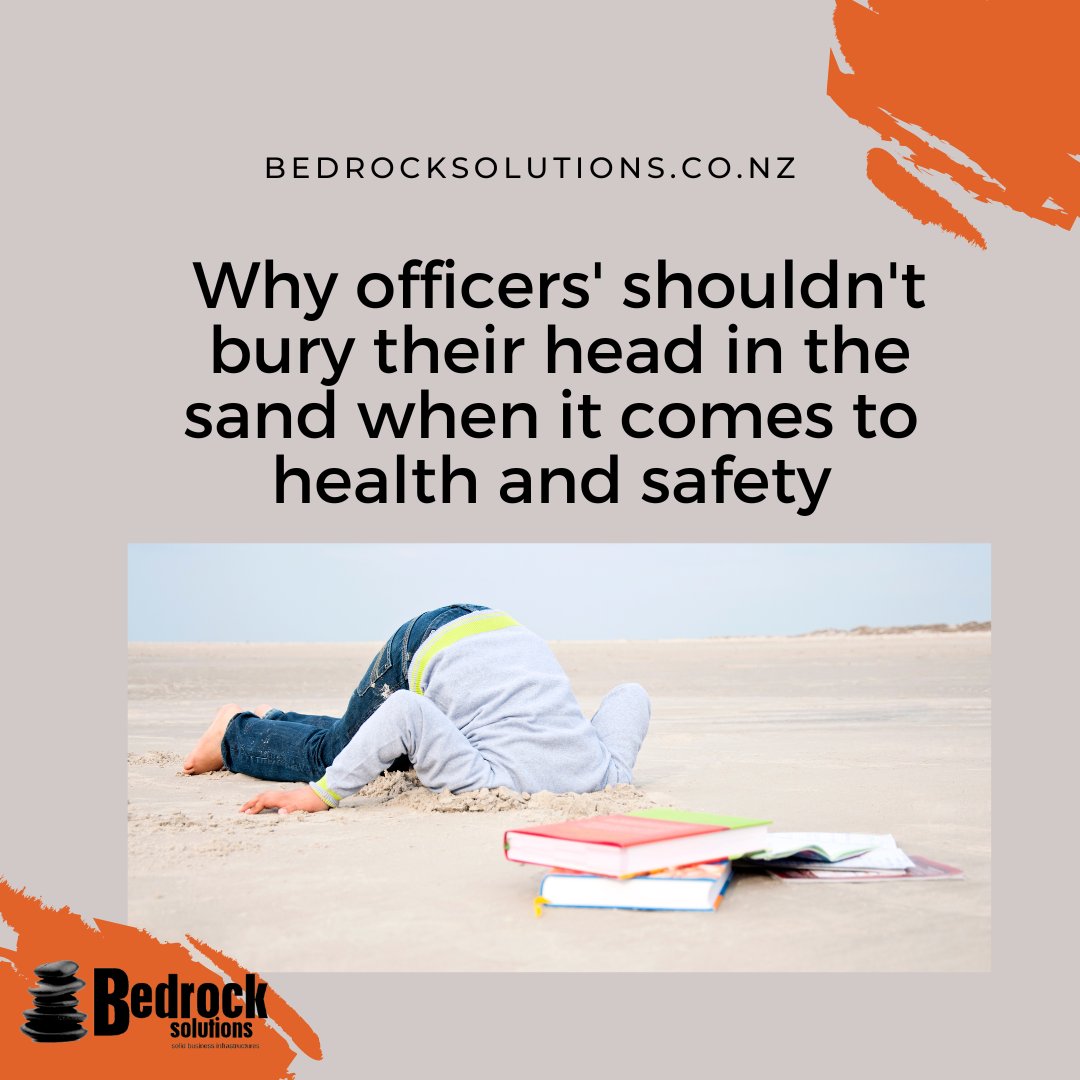Why officers shouldn’t bury their head in the sand when it comes to health and safety
If you have been following health and safety news, you will know that individuals and directors have a range of health and safety responsibilities. Today we explore the responsibilities of “officers.” The Health and Safety at Work Act 2015 defines an officer as a person who exercises considerable influence over the management of a business or undertaking (PCBU). Officers include directors of companies and potentially senior management positions such as the chief executive officer. If a PCBU has a health and safety duty, its officers must exercise due diligence to ensure that the PCBU complies with that duty. The PCBU has the primary duty to ensure the health and safety of workers. The officer must ensure the PCBU is able to discharge its obligations.
WorkSafe’s approach is now the enforcement of due diligence. In the past year, several officers have been prosecuted for breaches of the Act. In October 2021, at sentencing, the District Court warned directors (or people in similar positions of responsibility) that they can no longer expect that the consequences of decisions they make or do not make will be the sole responsibility of the company. In that case, the company director was convicted and fined for his failure to comply with his due diligence obligations. Familiarity with the day-to-day health and safety procedures will not necessarily be adequate to discharge the due diligence duty.
The due diligence process is a continuous cycle and at its most basic will require:
- Plan: The officer needs to have a clear understanding of what good health and safety practices and governance look like as it applies to the PCBU’s operations. Ignorance is no excuse.
- Do: An officer needs to ensure that resources are allocated, and systems are implemented effectively, especially in respect of hazard identification and control, and the provision of resources to workers, eg. the right equipment, personal protective equipment, training, and supervision.
- Monitor and verify: An officer needs to verify that the systems, processes, and other resources are in fact effective in delivering the desired health and safety performance. This part of the cycle then feeds directly back into the planning phase.
The work required can be delegated to other persons within the business, but the ultimate responsibility is the officer’s. An officer must be able to show that she or he was satisfied to standard of a reasonable, prudent person as to the effectiveness of business health and safety systems. Finally, do not forget to document the due diligence process – board papers and minutes are a crucial tool in documenting health and safety compliance.
If this is worrying you, remember that all WorkSafe prosecutions are considered on a case-by-case basis. Not every breach of the Health and Safety at Work Act by a PCBU will mean that the officer has also breached her or his obligations: if an officer has acted with due diligence, the officer will not be held liable for the conduct of the PCBU.
If you would like to know more about how we can help you streamline your operational health and safety processes do not hesitate to reach out 03 337 0593 or [email protected]
Click here to contact us.
Date Posted: 01 August 2022

